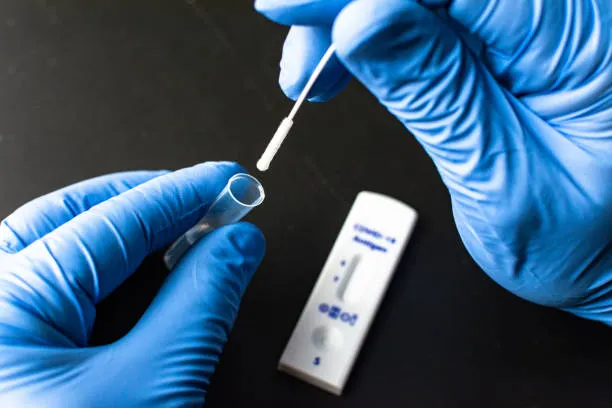The COVID-19 pandemic may feel like a thing of the past, but its long-term health effects continue to impact millions worldwide. Scientists and healthcare professionals are still uncovering the virus’s lasting consequences, leading to crucial updates in public health policies. As research advances, it becomes increasingly clear that COVID-19 is not just a short-term illness. From persistent respiratory issues to neurological complications, the virus can leave a lasting mark on the human body.
The Scope of Long-Term COVID-19 Effects
Even after recovering from the initial infection, many individuals report lingering symptoms. This condition, commonly referred to as Long COVID, affects both mild and severe cases. Studies estimate that nearly 10-30% of COVID-19 patients experience prolonged symptoms lasting weeks, months, or even years.

Common Symptoms of Long COVID
Research has identified several persistent symptoms in long-term COVID-19 cases, including:
- Fatigue – Chronic tiredness that does not improve with rest.
- Breathing Difficulties – Shortness of breath, even in those with no previous respiratory conditions.
- Brain Fog – Trouble with memory, focus, and overall cognitive function.
- Joint and Muscle Pain – Persistent body aches and stiffness.
- Heart Issues – Increased risk of heart disease, inflammation, and irregular heartbeats.
- Mental Health Challenges – Higher levels of anxiety, depression, and post-traumatic stress disorder (PTSD).
- Loss of Taste and Smell – Some individuals report these senses never fully returning.

Major Organ Systems Affected by COVID-19
COVID-19’s effects are not limited to just one part of the body. The virus can damage multiple organ systems, leading to long-term complications.
1. Respiratory System Damage
The virus primarily attacks the lungs, which can result in long-term breathing problems.
- Some patients develop pulmonary fibrosis, a condition that causes lung scarring.
- Decreased lung function may require ongoing oxygen therapy for severe cases.
- Increased risk of chronic obstructive pulmonary disease (COPD).
2. Cardiovascular Complications
Many COVID-19 survivors report heart-related issues months after recovery.
- Higher chances of developing myocarditis (heart inflammation).
- Increased risk of blood clots and strokes.
- Some individuals experience long-term fluctuations in blood pressure and heart rate.
3. Neurological and Cognitive Issues
COVID-19 has been linked to serious neurological complications.
- Some patients suffer from long-term memory loss and difficulty concentrating.
- Increased risk of developing neurodegenerative diseases like Alzheimer’s.
- Reported cases of Guillain-Barré Syndrome, a condition that affects the nervous system.
4. Immune System Dysfunction
Some individuals experience immune system dysregulation even after recovery.
- The virus can trigger autoimmune diseases.
- Increased susceptibility to other infections.
- Some patients experience prolonged inflammation, worsening existing health conditions.

Psychological and Mental Health Impact
Aside from physical symptoms, COVID-19 survivors often experience long-term mental health challenges.
- Anxiety and Depression – The fear of reinfection, health complications, and financial stress contribute to mental distress.
- Post-Traumatic Stress Disorder (PTSD) – Many ICU survivors suffer from PTSD due to the trauma of severe illness.
- Sleep Disturbances – Insomnia and disrupted sleep patterns are common among COVID-19 survivors.
Who is Most at Risk for Long COVID?
While anyone who has had COVID-19 can develop long-term symptoms, certain groups are at higher risk:
- Elderly individuals – Weakened immune systems increase the likelihood of prolonged effects.
- People with pre-existing conditions – Those with diabetes, heart disease, or respiratory issues face greater complications.
- Unvaccinated individuals – Studies suggest that vaccination reduces the risk of developing Long COVID.
- Severely infected patients – Those who were hospitalized or placed on ventilators are more likely to experience persistent issues.
The Ongoing Research Efforts
Scientists worldwide are conducting extensive research to understand and mitigate the long-term effects of COVID-19. Some key areas of focus include:
- Developing effective treatments – Medications and rehabilitation programs are being tested to aid recovery.
- Understanding why some people get Long COVID – Genetic and immune system studies are helping identify risk factors.
- Improving vaccines – Researchers are working on next-generation vaccines that could provide longer-lasting immunity.
How Public Health Policies Are Evolving
As more data emerges, governments and healthcare organizations are adapting policies to better support those suffering from Long COVID.
- Workplace accommodations – Some countries are recognizing Long COVID as a disability, offering financial aid and flexible work options.
- Increased healthcare support – Clinics specializing in Long COVID treatment are being established.
- Mental health resources – Access to counseling and therapy is expanding to address the pandemic’s psychological toll.
What You Can Do to Protect Yourself
With COVID-19’s long-term effects becoming clearer, taking precautions is essential.
- Stay up to date with vaccinations – Boosters help reduce the severity of the virus and lower the risk of Long COVID.
- Maintain a healthy lifestyle – Eating well, exercising, and managing stress can strengthen your immune system.
- Seek medical help early – If you experience lingering symptoms, consult a doctor for proper diagnosis and management.
Conclusion
The long-term effects of COVID-19 are becoming a major public health concern. With ongoing research, improved treatments, and evolving health policies, there is hope for better management of Long COVID. However, awareness and preventive measures remain crucial. As new findings continue to emerge, staying informed can help individuals and communities navigate the post-pandemic world safely.
Do Follow USA Glory For More Updates.






